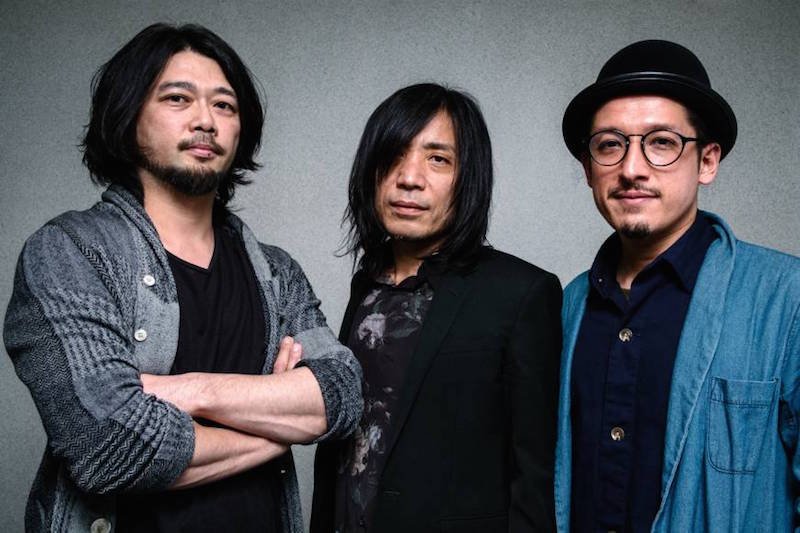Japanese Post-Rocker Taka Talks Boozing, Mono, and His New Solo Project Ahead of Oct 27 YGYS Gig
As the lead guitarist of Mono, Takaakira "Taka" Goto struck a major chord in every sense of the word, playing in one of Japan’s most beloved post-rock bands and working with acclaimed producers and musicians from around the world. Now, after nearly two decades of intense rocking out with Mono, Taka is striking out on his own and upending fans’ expectations by using synthesizers, samplers, and many effect pedals as well as the guitar that he has become so well regarded for playing. His new solo project, Behind the Shadow Drops, indeed sees him reaching even further beyond the avant-garde flourishes of Mono to a whole new fringe.
His fans in Beijing – the capital of a massive post-rock loving country – will now get to hear Taka's new conjurings first-hand at his Yugong Yishan gig this Friday, Oct 27. Ahead of the show, Taka tells us more about the project’s inspirations, which Beijing post-rock outfit he most loves to drink with, and more.

Why did you decide to do this solo project and release these songs on your own, instead of working on them with Mono?
This is my new challenge. I wanted to express something gothic with experimental music, using minimal electronic music elements such as trip-hop and an ambient base. I wanted to create some new music that doesn't have to be restricted by the standard band's formation. I’m using synthesizers, samplers, and many effect pedals with computers that I don't generally get to use for Mono, all of which have been lying around in my studio for quite some time.
I'll also be doing tours for this project, and I hope to gain some new experiences from it. I think this will give some nice feedback and influences toward Mono musically, as well.
What were some of the biggest muses, influences, and inspirations for these new Behind the Shadow Drops songs?
I wrote all the songs using "night" as a theme. The basic concept for the album involves many types of nights – be they sleepless nights, manic nights, sad nights, merciful nights, longing nights, praying nights, hopeful nights, loving nights, joyful nights, and silent nights.
It sounds like a very interesting side project, and a real departure from Mono and from post-rock, which you’ve had such a big impact on in Japan. To that end, I wanted to ask you how the post-rock scene in Japan has changed since you formed Mono, and what are the advantages and disadvantages of that?
I'm not sure. That's quite an interesting question, yet a difficult one to answer. I myself have not been observing the Japanese scene or the post-rock scene especially. But this year, we started a new music festival called After Hours in Japan with my friends, Nobukata Kawai (of the band Envy) and Robin Aoki (of the band Downy). The festival is purely independent and does not involve any promoters, management or labels. It's almost like the music festival All Tomorrow's Parties, which we appeared at a few times. All the 31 artists we trust came together and played one night [for After Hours]. A total of 2,500 tickets were sold really quickly. I feel that After Hours will make a huge impact on the independent music scene in Japan.

It would be great to have more festivals like that in China. What do you know about the scene here, and what do you like about it?
It feels like post-rock is becoming more and more popular in China. When we formed Mono back in 1999, we didn't know anything about it existing anywhere else. After almost 20 years, I'm really surprised how this genre has become such a big movement throughout the world. I think it's an extremely wonderful thing that instrumental music is getting heard and shared more and more worldwide. But I just want to say this now means, at the same time, a lot more originality will be required as well. Basically, no mimics should be allowed. China’s post-rock fans should demand something original and unique that only Chinese artists can create, and I also personally think that's what people in the world want to hear.
Tell me about having Xie Yugang (of pioneering Chinese post-rock troupe Wang Wen) as your opening act for this Beijing show.
Wang Wen is a fantastic band, and they are also are my good friends. I especially think the band leader, Xie, is a very talented musician. He also never forgets about respect, even when he's drunk [laughs].
Wang Wen has previously supported Mono in Sweden as a supporting act for a few shows. I think they're the most talented instrumental band, as far as my knowledge goes in China. I have yet to hear Xie's solo project, but I'm really looking forward to sharing the stage with him on this tour as a fellow solo artist.

Taka and Xie Yugang will perform at Yugong Yishan on Oct 27 at 9pm, organized by New Noise. Tickets are RMB 150, RMB 120 (advance). Find more info and purchase tickets here.
Photos: New Noise, The Monolog, The Japan Times







